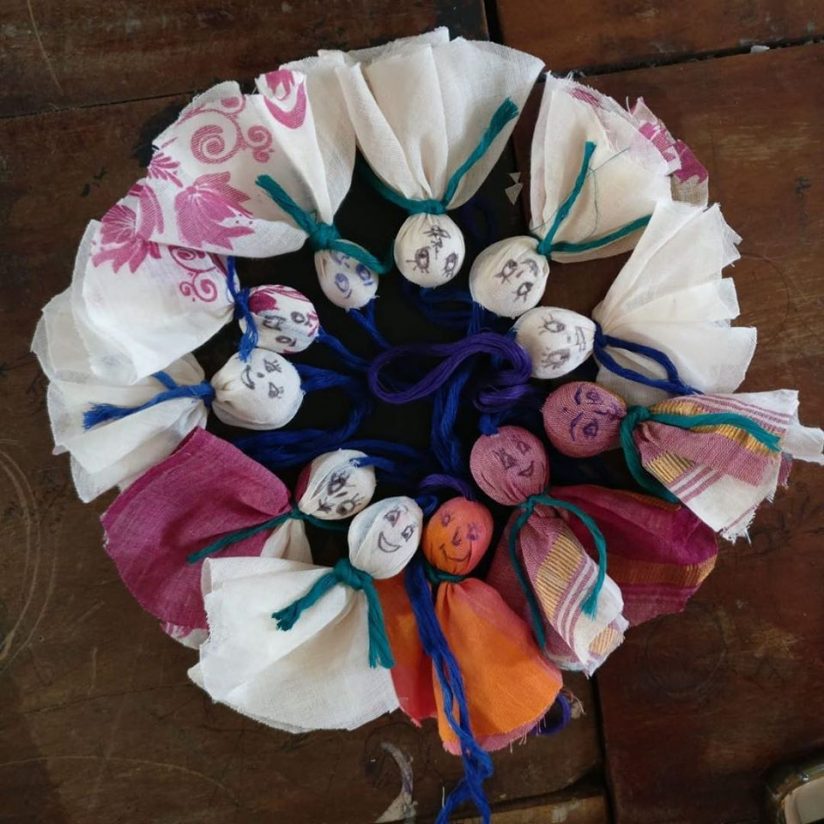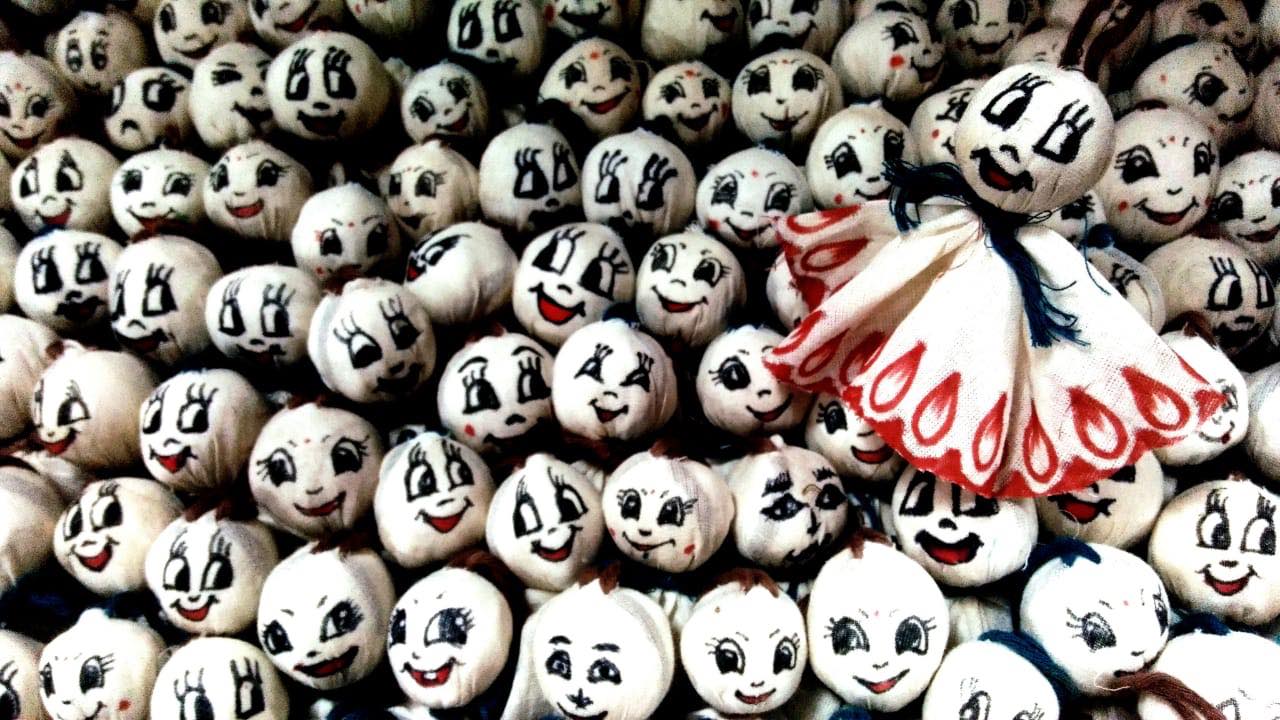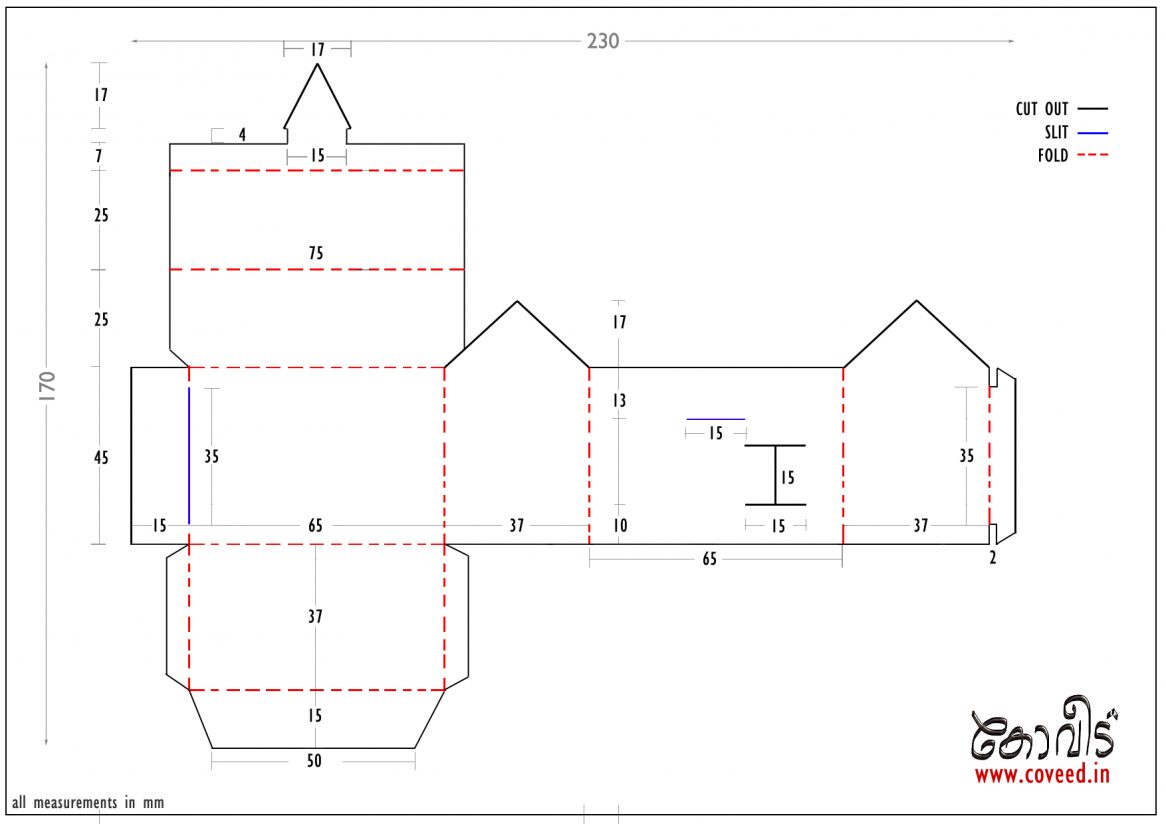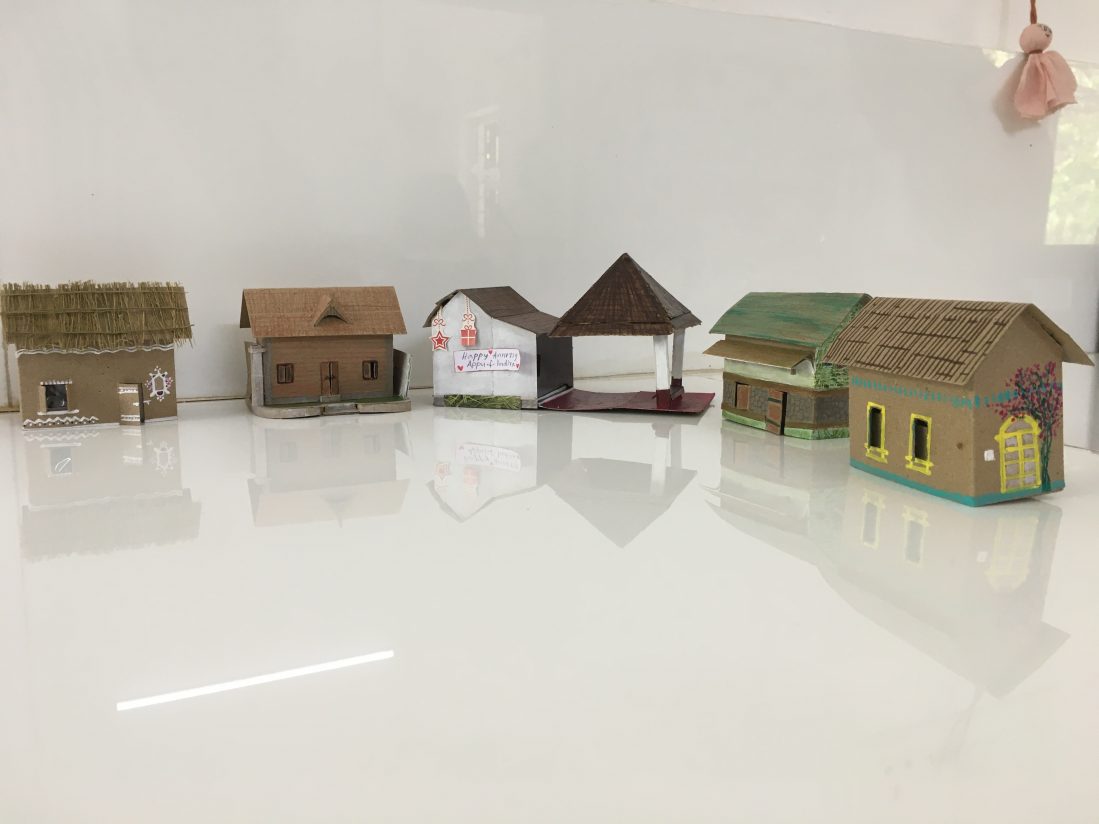Design-centric Social Action
Here is a social activist and designer, Lakshmi Menon, who has made it her life motto to find quirky yet simple solutions to livelihood-threatening problems. She has devised an easy method to help the daily-wage labourers who would be adversely affected by the mandatory lockdown in the subcontinent. By Sindhu Nair

Lakshmi Menon with the co-founder of Chekutty Gopinath Parayil at Chendamangalam Handloom Factory with a Chekutty mural behind.
Lakshmi Menon might not be a very familiar name to many but her efforts have made their mark. In 2018, during one of the most devastating floods that ravaged the shores of Kerala, India, Lakshmi pulled one industry literally out of impending doom. The handloom industry at its peak business season was completely wrecked due to the floods. Chendamangalam loom, situated in a small town of the same name near Parur, approximately 30 km away from Kochi was one of the most affected by the floods. Just a few weeks before Onam, the yearly harvest festival, when the factory was loaded with new orders, floodwaters washed away its entire stock. When the weavers approached Gopinath Parayil, a social entrepreneur, he, in turn, called out to his friend Lakshmi to find a sustainable solution. And thus, came about Chekutty, a doll born of the same rag garments, the remnants of the destroyed handloom. Chekutty went on to become a star, a mascot of the natural disaster that threw light on how a community of weavers overcame challenges and joined hands with the rest of the society to become a beacon of hope and resilience. What was born from cheru (mud) was given the name Chekutty. Now Chekutty dolls have become an international face with bulk orders of the dolls from the World Bank after it was featured twice in the UN World Conference on Disaster Risk Reduction held in Geneva last year. Chekutty became much more than what it was envisioned for, it became a social enterprise where people are taught to make these dolls in various workshops, in schools and organisations. The brand as an umbrella encloses many such initiatives within it. The leftover yarns were also used to make Chekuttythiris (wicks).

 Lakshmi is a solution provider to issues that touch her heart or need an intervention that can change lives. It is difficult to hold Lakshmi back; she is touched by various humanitarian issues and the designer in her identifies problems as her mind works out solutions to make life easier for those whose plights have been recognised.
Lakshmi is a solution provider to issues that touch her heart or need an intervention that can change lives. It is difficult to hold Lakshmi back; she is touched by various humanitarian issues and the designer in her identifies problems as her mind works out solutions to make life easier for those whose plights have been recognised.
From Ammommathiri or Wicksdom to PenswithLove, a paper pen with a seed incorporated behind it, to insurance schemes to help the fishermen folks affected by the floods are just some of the products that Lakshmi creates. All this within her company called The Pure Living, whose CEO is her 96-year-old grandmother. Her employees are womenfolk around her hometown who help bring these enterprises to life. Her initiatives might be born out of necessity but they become larger than the cause by providing work, livelihood, and respect to women in villages.
Lakshmi’s initiatives deserve longer stories but we are in the times of Coronavirus and there are new challenges that fire the innovative brain of hers and as can be expected, she has come out with two solutions to provide solutions to the needy.
The first one was to engage support from largesse to supply hand sanitisers to daily workers who keep us safe. Loka was to be a collective effort to help “Break the Chain” with the help of the virtual world. “Loka: is a world of togetherness for the physically distanced yet socially connected. It is a viral art form (called Coronart) initiated to raise awareness as well as funds to help prevent the spread of the COVID-19 infection,” she says.
“It is a plot to break the Coronavirus,” says Lakshmi, “People from around the world can buy plots on a map, virtually. With the money collected, hand sanitisers are bought and distributed to those who are working on-site during the times of the virus outbreak.”
Loka is currently on hold as the entire nation is on lockdown and logistical support to get these hand sanitisers to the right segment proved to be a challenge but it will be back in action as soon as the lockdown is taken off.
Years later, this plot can be looked upon to remember how a community or even a global population came together, to help each other in times like never before, a tapestry of togetherness, perhaps.
CoVeed to Combat Covid

To participate in this initiative, download this template, print it out, stick on a hardboard, cut it out to make CoVeed.
Lakshmi’s latest initiative is even more heartfelt. It is for those who are in lockdown at their comfortable home to help those who are on forced lockdown yet cannot afford the luxury of being without work.

Examples of CoVeed samples which can be treated as a project for children and can be innovated while it carries food for needy,
“CoVeed is reminding each of us that the only way forward is Coexistence through Cooperation. Keep aside a share of grain or pulses when you cook for your family and pack it in the CoVeed. After 21 days we can donate it to anyone or any family or institution that would appreciate it. It could be rice, oats, pulses, tea leaves, coffee beans, etc. A CoVeed built of 6x 6 cms paper and can hold rice sufficient for 2 persons (measurement based on double-boiled rice). If made of an A4 paper it can hold 1/2 cup of grain. This is a social contribution during the 21 days of lockdown but it can be carried on later as a regular practice by schools and resident associations while we engage in our daily activities,” she says.
This is aa activity to involve your children, it will keep them engaged during lockdown while it will also inculcate values of sharing, cooperation, and co-living.
Like all other challenges the Coronavirus calamity will teach us some life lessons and we hope that when the world regroups, we will be in a world that is much more cooperative, where we coexist with collaborations and kindness. The CoVeed from Lakshmi is one step to come closer to a kinder world.






